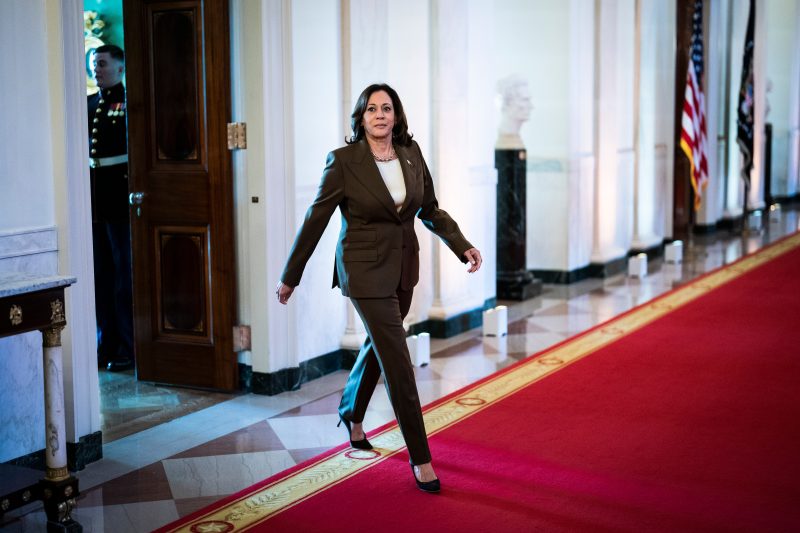
Harris Shines Spotlight on Palestinian Suffering in Gaza, Creates Divide with Biden
In the wake of the recent conflict in Gaza, Vice President Kamala Harris has notably taken a stance that has created some distance from President Joe Biden on the issue. By emphasizing the suffering of the Palestinian people, Harris has diverged from the administration’s broader messaging which has traditionally placed a stronger emphasis on supporting Israel’s right to defend itself.
One of the key moments that highlighted Harris’ distinct position came during an interview with The Charlamagne Tha God Show. When asked about the situation in Gaza, Harris expressed concern for the Palestinian civilians, particularly children, who have been affected by the violence. Her heartfelt words resonated with many who have been critical of the U.S.’s unequivocal support for Israel, regardless of the human cost on the other side.
This shift in tone and prioritization of Palestinian suffering marks a departure from the usual diplomatic approach that the U.S. government has taken in the past. While Biden has reaffirmed Israel’s right to self-defense and condemned Hamas rocket attacks, Harris has been vocal about the need to address the root causes of the conflict and ensure the protection of innocent lives on both sides.
Critics argue that Harris’ position may strain relations with Israel and hinder efforts to broker peace negotiations in the region. However, supporters see her willingness to speak out on behalf of the marginalized and voice concerns about the humanitarian crisis unfolding in Gaza as a sign of moral leadership and a commitment to upholding human rights.
Regardless of one’s stance on the Israeli-Palestinian conflict, Harris’ decision to highlight Palestinian suffering serves as a reminder of the complexity and human cost of the ongoing tensions in the region. As a powerful voice within the administration, her perspective adds a layer of nuance to the conversation and challenges the status quo of unwavering support for Israel.
Moving forward, it will be interesting to see how Harris’ stance on Gaza shapes U.S. foreign policy and impacts the dynamics of the Israeli-Palestinian conflict. While maintaining a strong alliance with Israel is crucial, acknowledging the suffering of all those affected by the conflict is equally important in fostering a more balanced and compassionate approach to resolving the longstanding issues in the region.
In conclusion, Vice President Kamala Harris’ decision to emphasize Palestinian suffering amidst the Gaza conflict has sparked a meaningful conversation on the need for a more nuanced and empathetic approach to addressing the Israeli-Palestinian conflict. By bringing attention to the human cost of the violence and advocating for the protection of innocent lives, Harris has demonstrated a commitment to upholding human rights and challenging traditional diplomatic norms. Only time will tell how her stance will influence U.S. foreign policy and contribute to efforts towards achieving a sustainable peace in the region.
